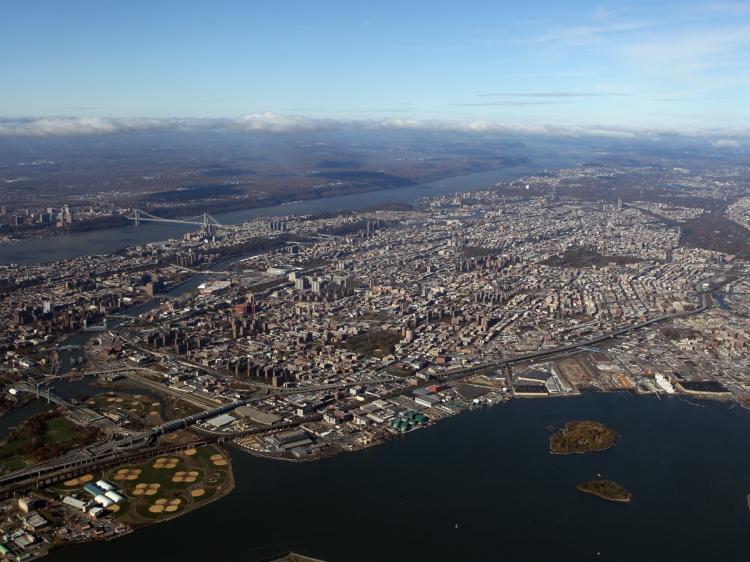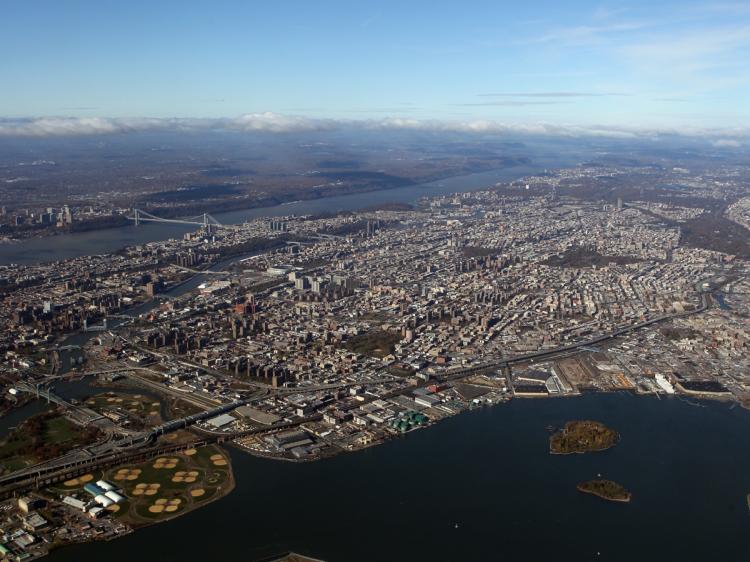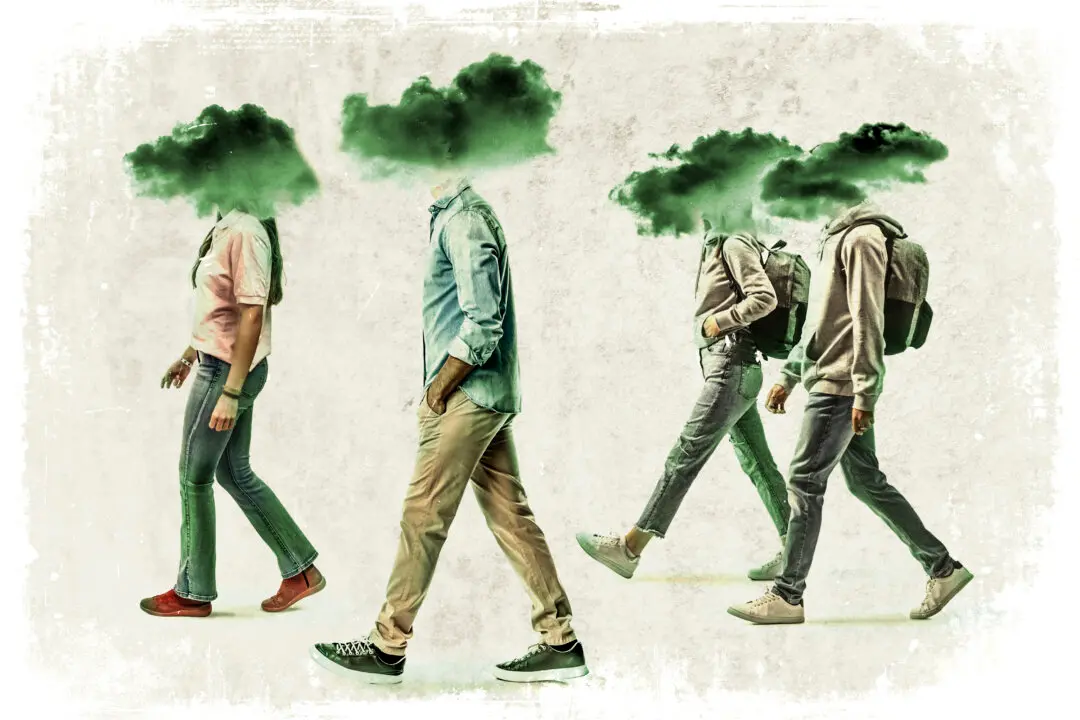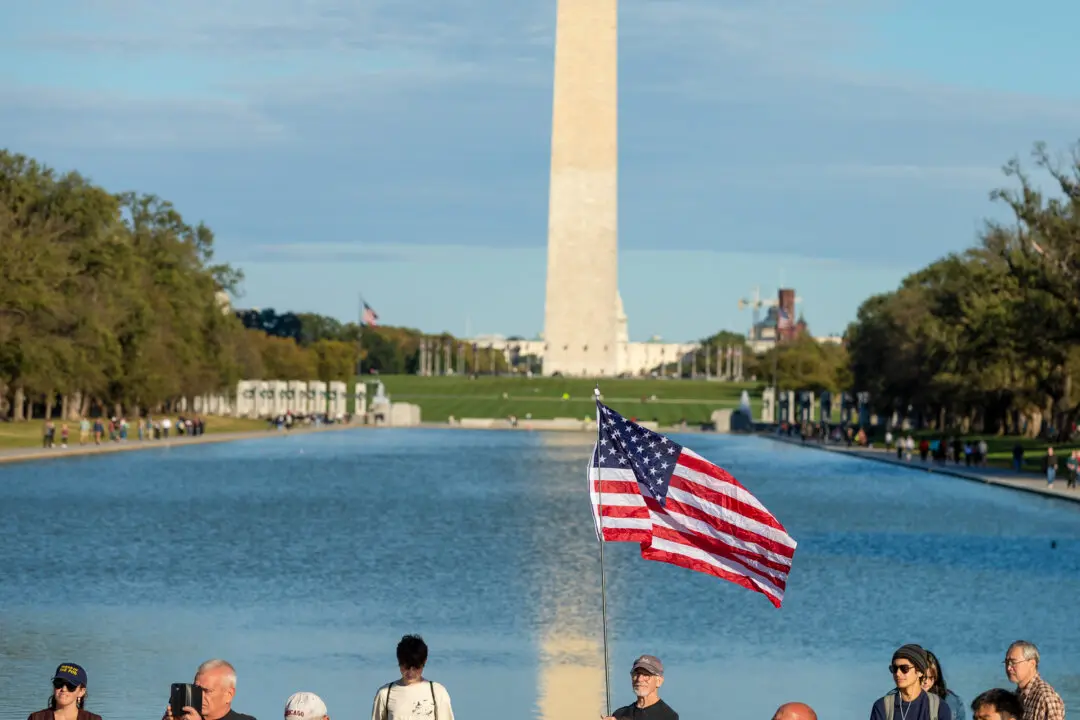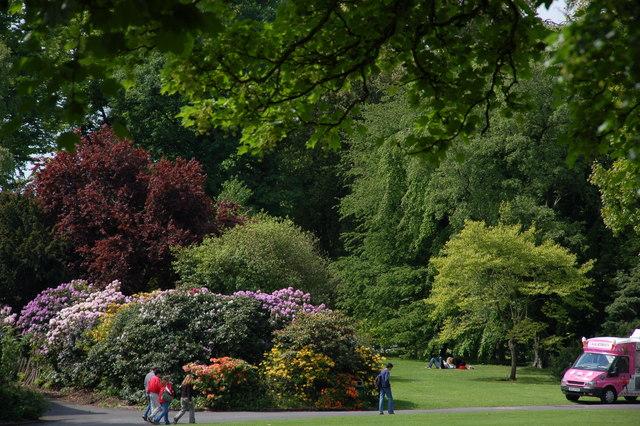Opinion
The Nor'easter: The Understated Water Crisis
Carbon is a filthy gas that is affecting our health. There are many reasons to move toward cleaner air.
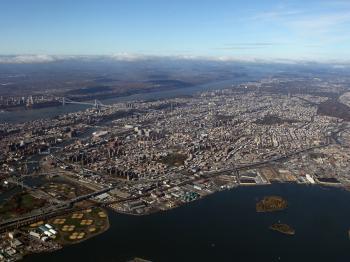
An aerial view of the Bronx and the George Washington Bridge photographed on Nov. 9. Bruce Bennett/Getty Images
|Updated:
Evan Mantyk teaches history and literature in New York. He is also president and editor of the Society of Classical Poets.
Author’s Selected Articles

